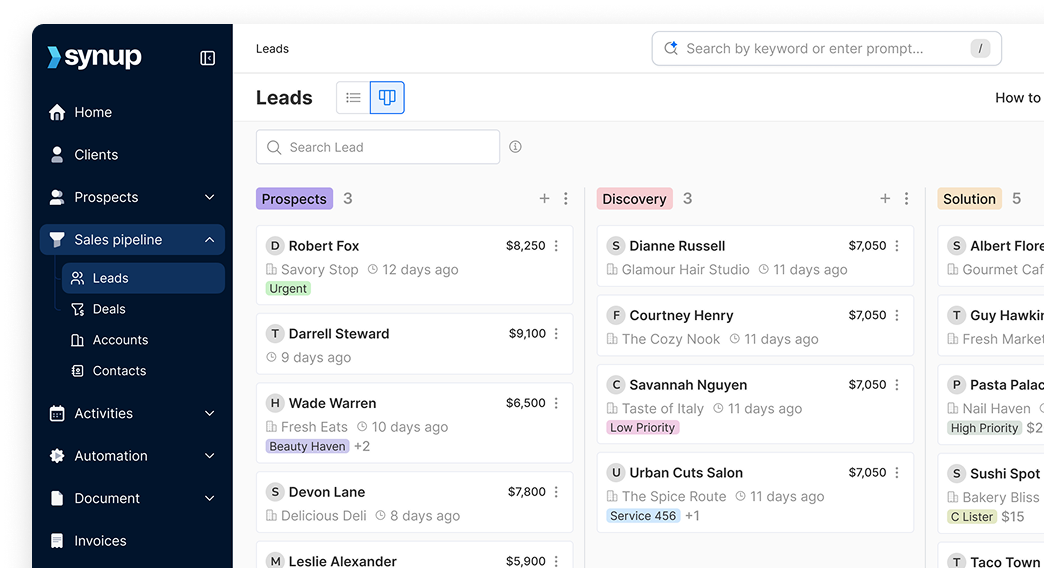Why Online Reputation Management Matters For Doctors
Uncovering some effective strategies to manage your hospital or clinic's online reputation with this comprehensive guide. Learn various ways on how to enhance your online presence and build trust with patients.
Nearly 94% of patients use online reviews to evaluate healthcare providers, This tells us how Online Reputation Management (ORM) is of utmost importance for doctors. As patients increasingly turn to the internet to research healthcare professionals before making appointments, the information they find - be it positive or negative - can heavily impact their decisions. A strong online presence with positive reviews not only builds trust but also helps you stand out from the rest.

Benefits of Online Reputation Management for Doctors
- Positive reviews and high ratings can bring new patients to your practice.
- A strong online reputation builds trust and credibility among potential patients.
- Active management of your online presence allows for better communication with patients outside of office visits.
- Satisfied patients are more likely to return and recommend your services to others.
- Proactively addressing negative feedback can help lessen its damage and show commitment to patient satisfaction.
Key Factors of ORM
Here are some of the key factors one should take into consideration when chalking out their ORM strategy. It might require some additional time and effort to provide your patient with the right kind of advice and feedback, but it is worth it.
1. Monitoring and Listening
Regularly tracking mentions of your brand across various platforms, including social media, review sites, and forums, is essential for understanding public perceptions about your business. This helps you understand what your patients think about you, and how they feel about your business. Look at some of the improvements you can make to help them feel more satisfied with your service.
2. Responding
Actively engaging with customers through responses to reviews and comments helps create a sense of community and shows that you as a business value customer feedback. Let’s say that a customer receives a response from your end, even after they have posted a positive review, this shows that you always value your customers and truly care about them.
3. Responding to Negative Reviews
Having a plan in place to address negative reviews or publicity quickly can mitigate damage to the brand's reputation. Now, let's face it - replying to negative reviews and criticisms might not always be easy, but various tools help you go about this in a much easier manner. It also allows your patients to clarify any misunderstandings and in turn, helps you offer solutions that can prevent potential patients from being discouraged. A well-crafted response portrays professionalism and helps turn a negative situation into an opportunity to build credibility and transparency.
4. Requesting for Reviews
Requesting reviews helps doctors build trust with their patients, increase their online visibility, and manage incoming feedback promptly. It also improves their credibility and makes it easier for them to rank on Google while giving doctors a chance to address patient concerns early. In a competitive space, collecting reviews over time helps set them apart from the competition and brings in more footfall.
5. Highlighting Positive Reviews on Your Social Media
Highlighting positive reviews on social media is a step doctors and healthcare professionals just can’t skip! It helps influence their reputation and patient acquisition. Over 70% of patients read reviews before selecting a healthcare provider, this shows how much impact your online presence can create. Positive reviews not only serve as testimonials but also act as social proof. This is vital, as 83% of patients require a minimum rating of 4 stars to even consider an online review, this goes to show that maintaining high ratings is essential for attracting new patients.
Best Practices for Maintaining a Positive Online Reputation
Maintaining a strong online reputation is key for healthcare providers, especially when it comes to generating patient reviews after appointments. With more patients relying on online feedback to select healthcare providers, it's important for doctors to actively manage and respond to their patient’s reviews on time, this helps immensely with their online presence.
Following are some of the best practices for maintaining a positive online reputation in healthcare, especially when it comes to generating patient reviews after appointments.
- Have front desk staff remind patients to leave a review as they check out, keeping it personal while the visit is fresh.
- Include review requests on appointments or business cards for patients less comfortable with tech.
- Send follow-up emails shortly after appointments, thanking patients and asking for reviews.
- Integrate with EHR to automate requests and track feedback easily.
- Use booking platforms to automate review requests after appointments.
- Display your QR codes in waiting areas for easy access to review platforms.
- Ensure all team members understand the importance of reviews and how to ask for them.
- Use posters or flyers to remind patients to leave reviews.
- For emotionally charged fields (e.g., oncology), request reviews with empathy, mindful of patient comfort.
- Frame review requests as part of improving care.
- Encourage detailed feedback from patients to help potential patients seeking specialized care.
Handling Negative Reviews and Criticism
As a healthcare professional, getting both positive and negative feedback is inevitable. While negative reviews can be tough to handle, they’re a chance to learn, grow, and build your connection with patients.
- Always keep your responses prompt and professional
Addressing negative reviews quickly shows that you value patient feedback. A timely response can help with the impact of negative comments and instead showcase your commitment towards your patients and health care.
- Acknowledge and empathize with your patients
Understand your patient’s feelings and the experience they went through. By acknowledging their feelings and their concerns, you can help make the situation better for them and show that you care for them deeply. Go out of your way, in cases you can afford to, to help show them that you’re striving to make a difference. Make sure that you provide enough training to your staff to handle this while you’re away or busy.
- Always Take Sensitive Conversations Offline
Always take your conversations with your patients offline. Try to chat with them or just get in touch with them, whenever possible, and move the discussion away from public forums to a private setting. This allows for a more personal interaction where you can address issues directly without the constraints of public scrutiny. Advise your staff to do the same while addressing such issues online.
- Learn from Feedback
Use negative reviews as a learning opportunity. Understand the feedback to identify areas for improvement within your practice, which can later lead to you serving your patients better. You can also loop in your staff about the feedback you receive and provide them with training or resources that might come in handy to help them understand your patients better.
- Training your staff
Your staff must take care of the patients just as much as you do. Make sure you provide them with the right training materials and training, along with any tools they might need to excel in their roles. Create an environment where you can call them out and correct them when necessary, but do it in a way that fosters growth rather than discouragement.
- Lead by Example
As a leader, your behavior sets the tone for the entire practice. Show your commitment to patient care through your actions. Be approachable, listen actively to both staff and patients and portray the same level of care you expect from your team. By investing in your staff's development and creating a supportive environment, you’ll not only help increase your patient satisfaction but also build a team that can work together in harmony. In the end, when your staff feels equipped and valued, they’ll deliver exceptional care that reflects positively on your practice as a whole.
Reputation Management Tools That Can Help
Here are some online reputation management tools that can help you manage your reputation better and eliminate all the manual handling of your patients. We will also talk in detail about their benefits, pros and cons.
1. Synup
Synup is the go-to solution for all your review management needs. Whether you’re a doctor, healthcare professional, or any kind of business, Synup provides a complete platform to manage your listings and reputation seamlessly. With Synup, you can easily monitor and respond to reviews, ensuring your online reputation truly reflects the quality of your services.
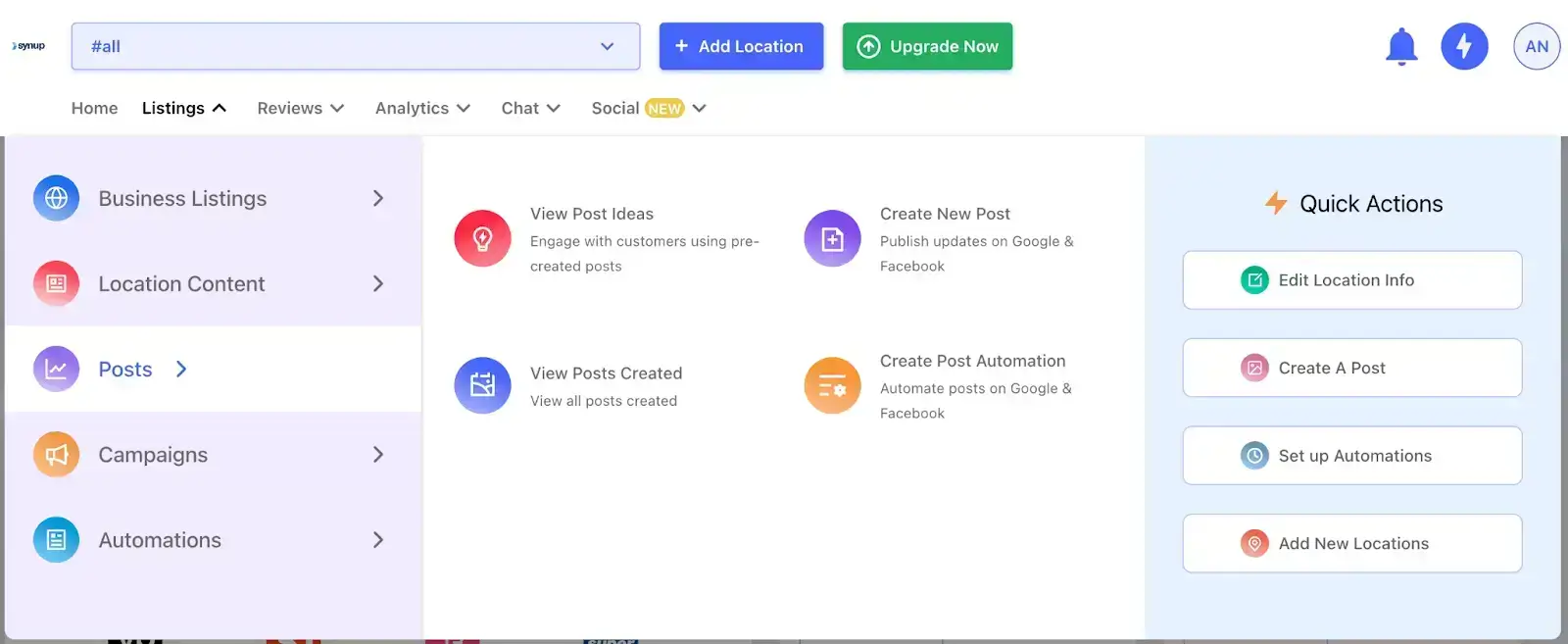
Features
➡️Has a publisher’s network of over 60+ directories including major platforms like Google My Business, Facebook, Yellow Pages, Bing, and more.
➡️Has intelligent Natural Language Processing that can quickly help analyze your customers’ sentiments to tell you what they like and dislike about your business
➡️Helps you gather reviews directly from the customers via email and SMS
➡️Comes with response templates that you can use and save for later if need be
➡️Gives you a 360-degree view of your overall business performance and customer sentiment via reviews
➡️Seamless AI integration across all facets of social media management.
➡️Synup’s voice search optimizer helps optimize your listings at the top of SERPs, especially for no-click searches
➡️Generates automatic reports based on your campaign performance
➡️Helps you monitor your campaign performance in-depth and make informed decisions to improve your conversion rate at every step of the buyer journey
Pros
✅Users say that the customer service that is offered is top-notch
✅It offers great value for money and provides various pricing options for different business sizes and requirements
Cons
❌Due to an extensive number of features, navigating the platform might get a little overwhelming at times
❌Can do better when it comes to advanced analytics for Local SEO features
Priced at $34.99 Per Month
Let’s say you’re a healthcare professional with a chain of clinics across various locations in a city, With Synup, you can easily monitor reviews, respond to patient feedback, and request new reviews - all from a single, user-friendly dashboard, along with managing your listings. This tool is designed to help you better streamline your operations, allowing you to focus on providing exceptional health care without the hassle of fishing out alternatives for other tasks or even doing all of it manually for that matter.
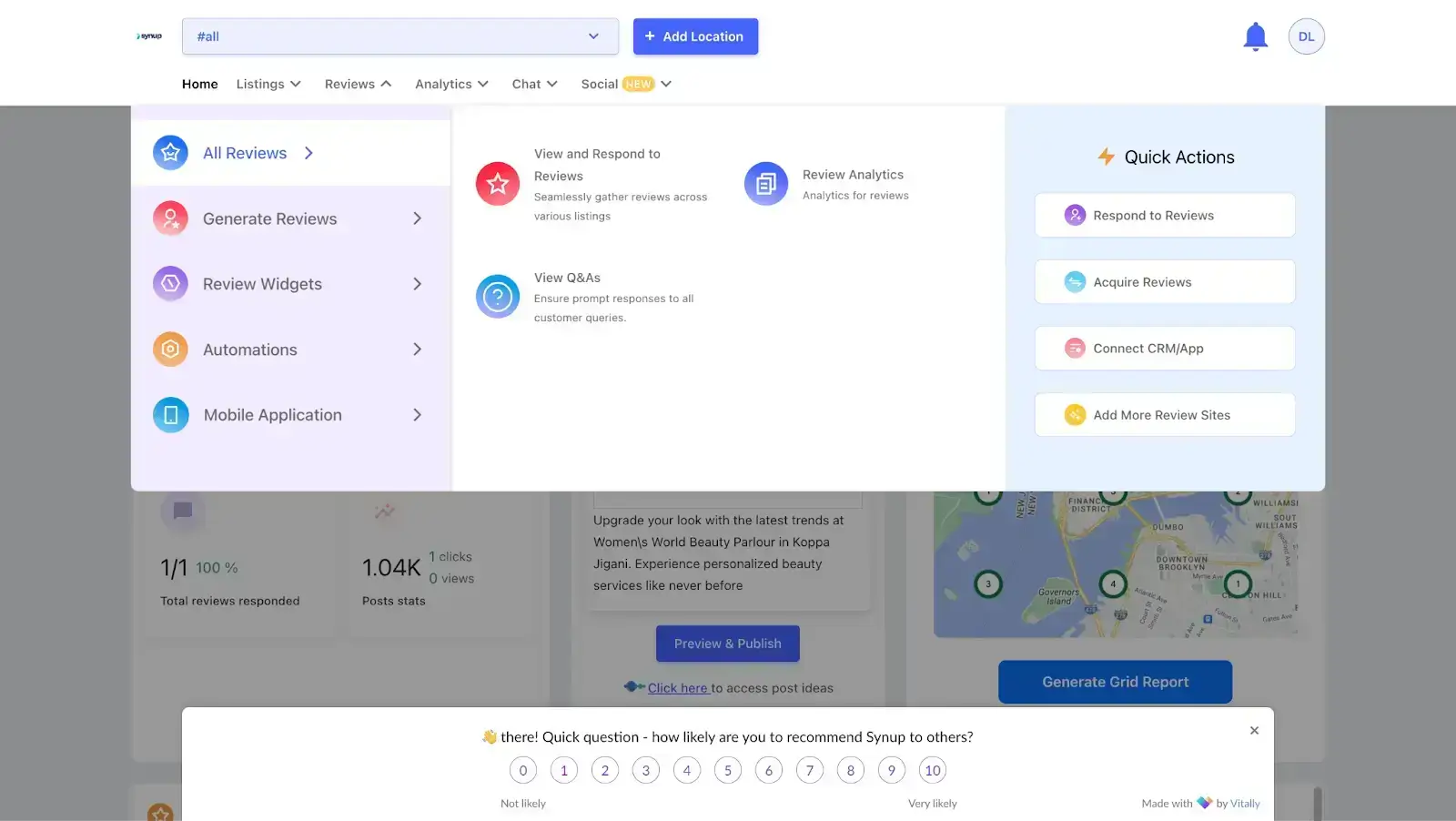
You can also send personalized review requests to satisfied patients with automated features to ensure that no opportunity for positive feedback is missed. This is important because 90% of consumers read online reviews before visiting a business.
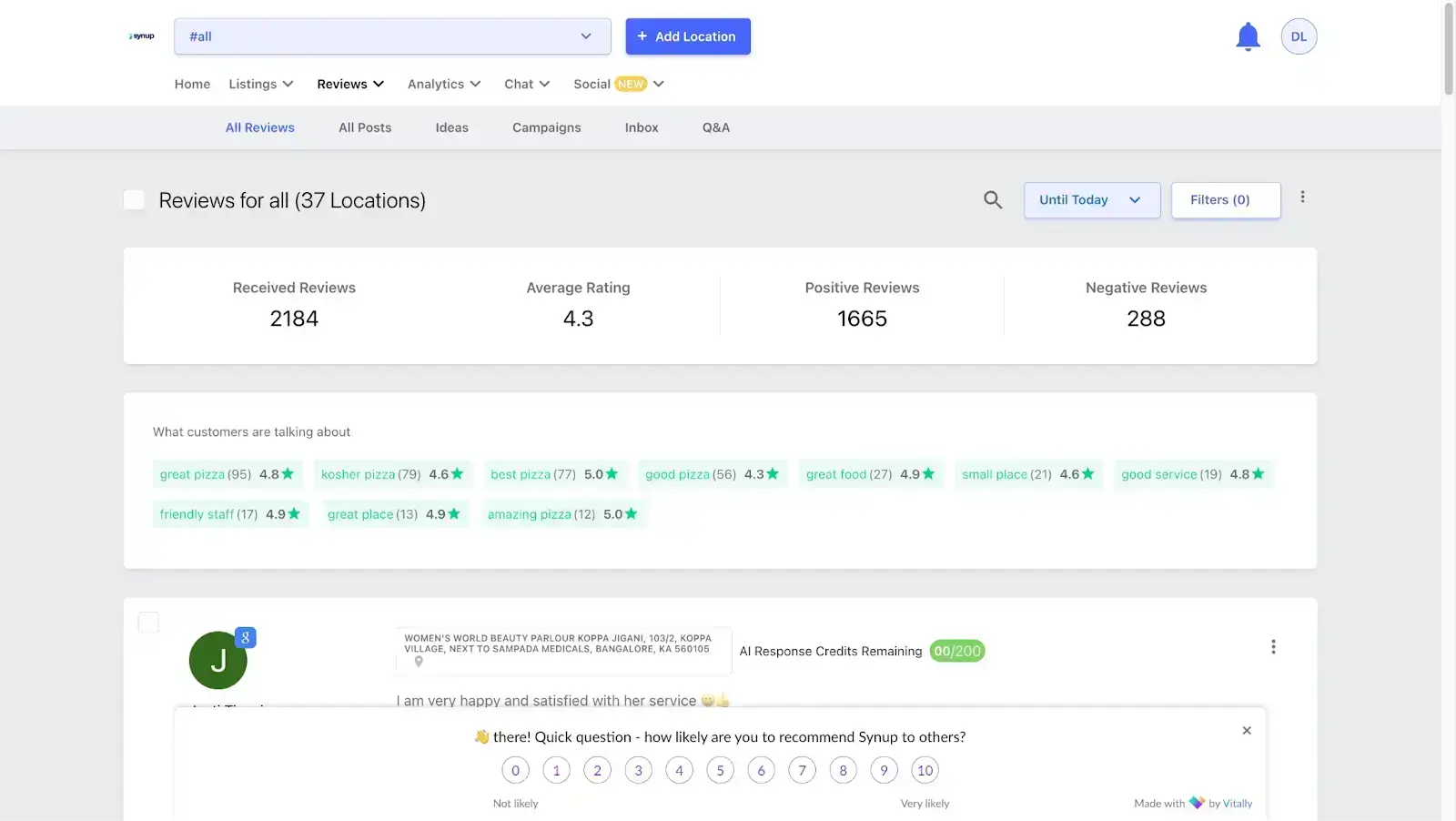
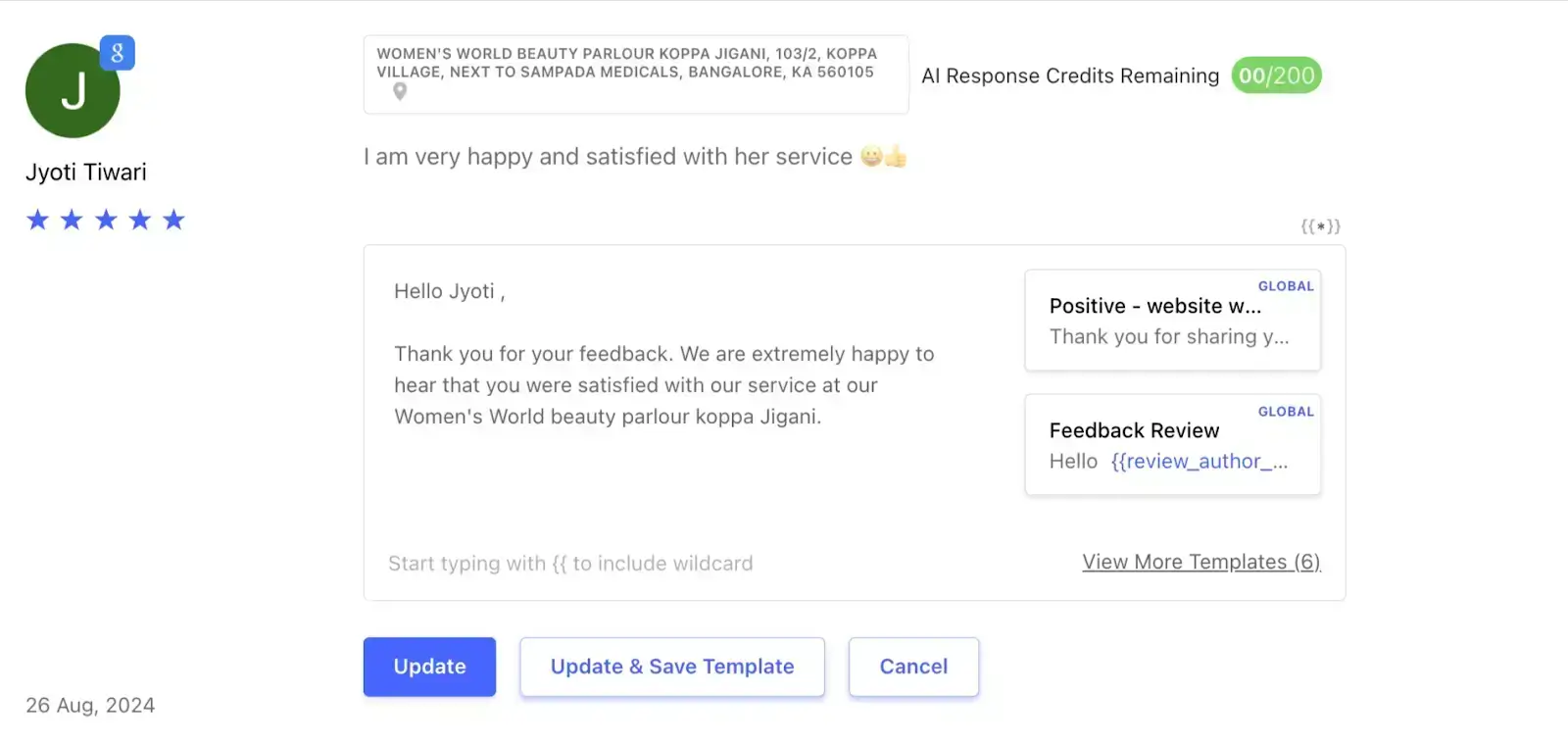
Along with this, one can also save, update, or generate automated responses as per your brand tonality so that you don’t have to go through embarrassing grammatical or spelling mistakes.
There are various filters that you can use to segregate reviews as per your preference. These filters are based on review sites, ratings, status, type, and more.

Synup also curates ideas for you based on your preferences, industries, and categories so that you don’t have to put in too much thought while having to maintain your social media presence and interact with your patients.
Here’s what generating ideas on Synup might look like:

You can also easily interact with all your patients asking you queries of different kinds, looking to seek advice or just help them in general with their follow-up appointments and more with Synup’s Q&A feature, where you can easily answer all their questions and their doubts.
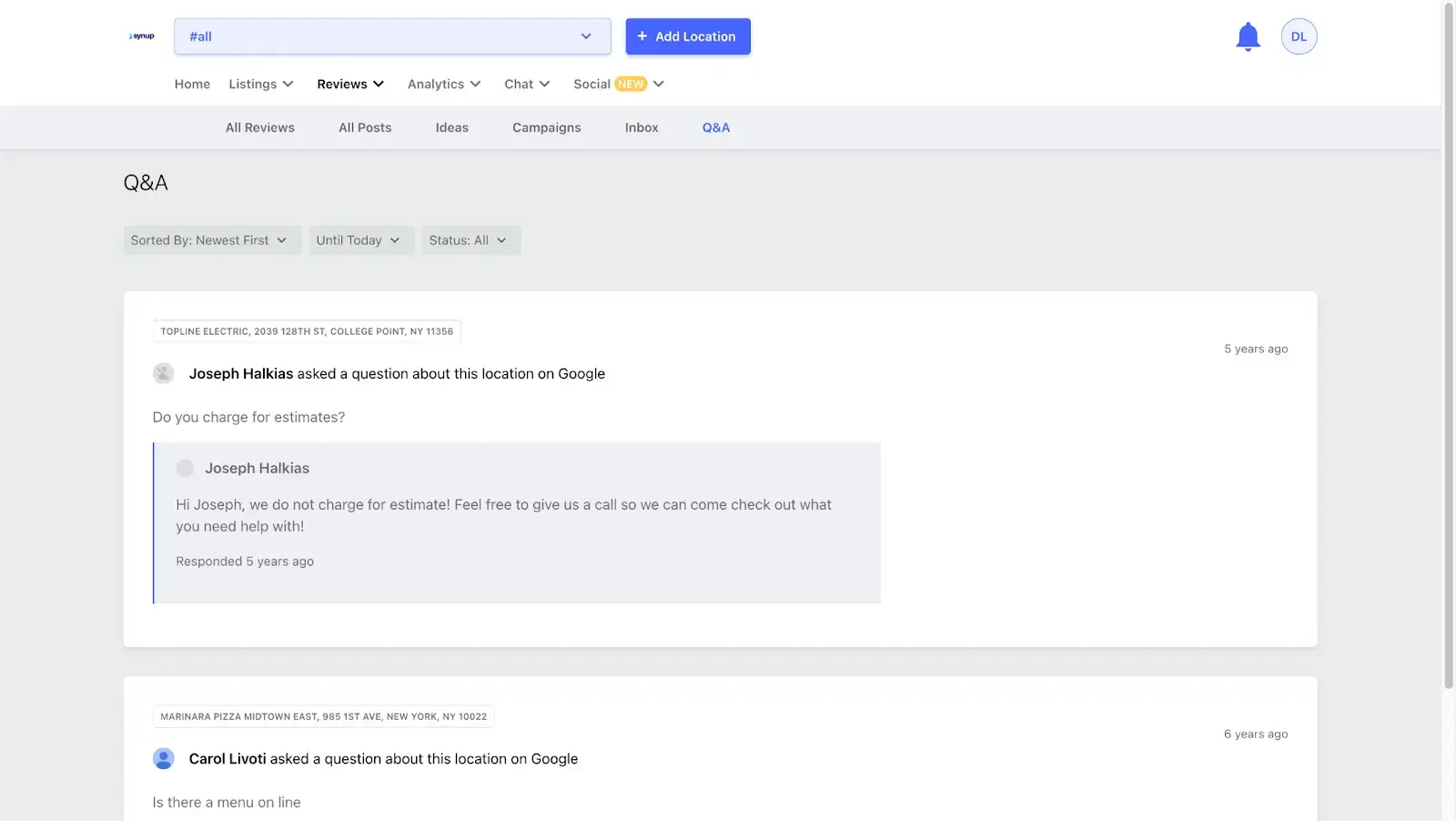
With the Review Analytics feature, healthcare professionals can generate custom reports that highlight key performance metrics and insights. This is crucial for understanding how patient feedback impacts the practice's reputation and can help guide important decisions moving forward.
Here’s what people think about us -
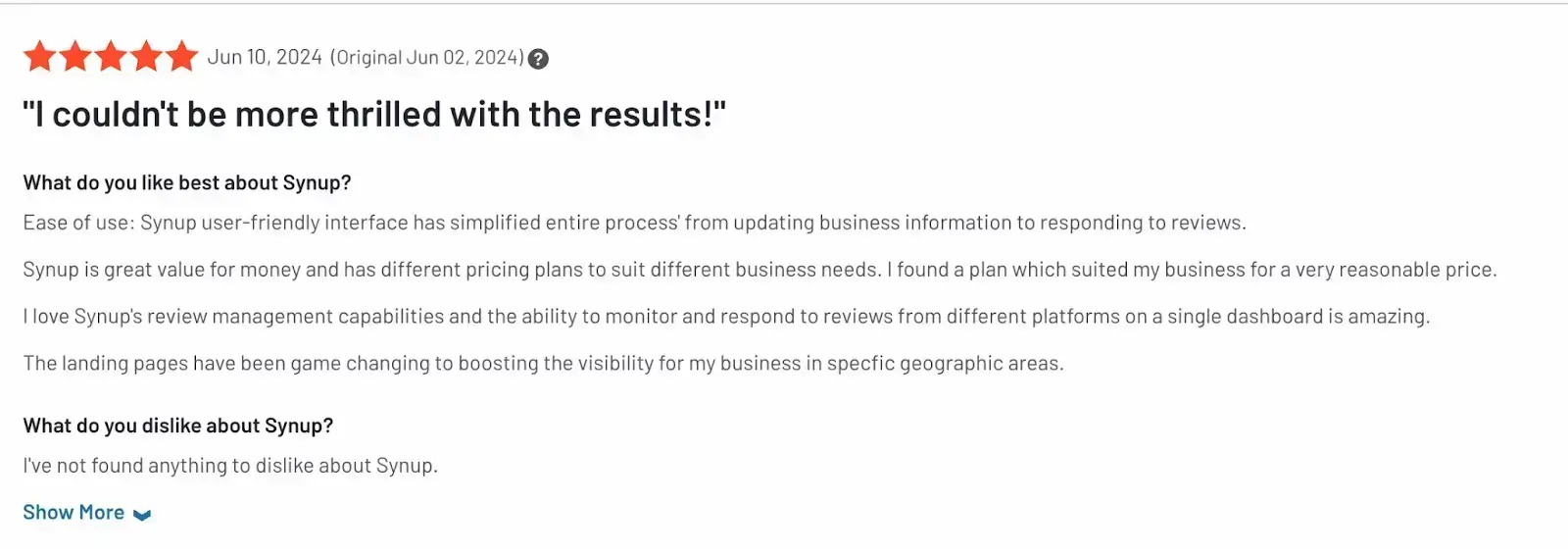
2. Birdeye
Birdeye is an online reputation management (ORM) platform that serves various locations and industries including healthcare. It helps managing and responding to feedback and reviews easier along with monitoring, requesting, and various other features. It helps manage your online reputation better through proactive review generation and management.
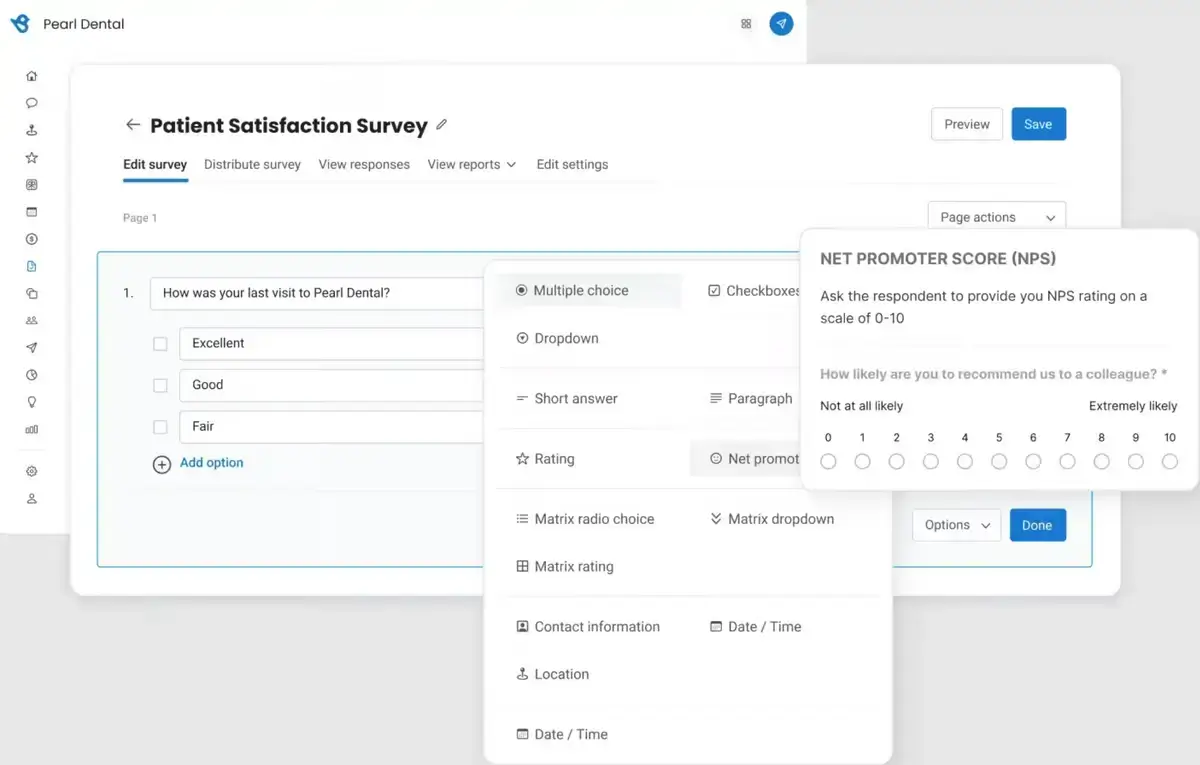
Pros:
✅Great UI and easy to operate
✅Excellent Reporting Capabilities
✅Decent customer service, prompt to respond and understand your concerns
✅Provides a library of templates to choose from
Cons:
❌Expensive
❌Does not make use of its own tech for API management
❌No frequent product updates or tech innovations
Starts $299 Per Month
3. Podium
Podium helps with patient communication through its ingenious messaging platform, which helps clinics interact with patients via text. This not only helps with communication but also encourages review generation by making it easy for satisfied patients to share their experiences.
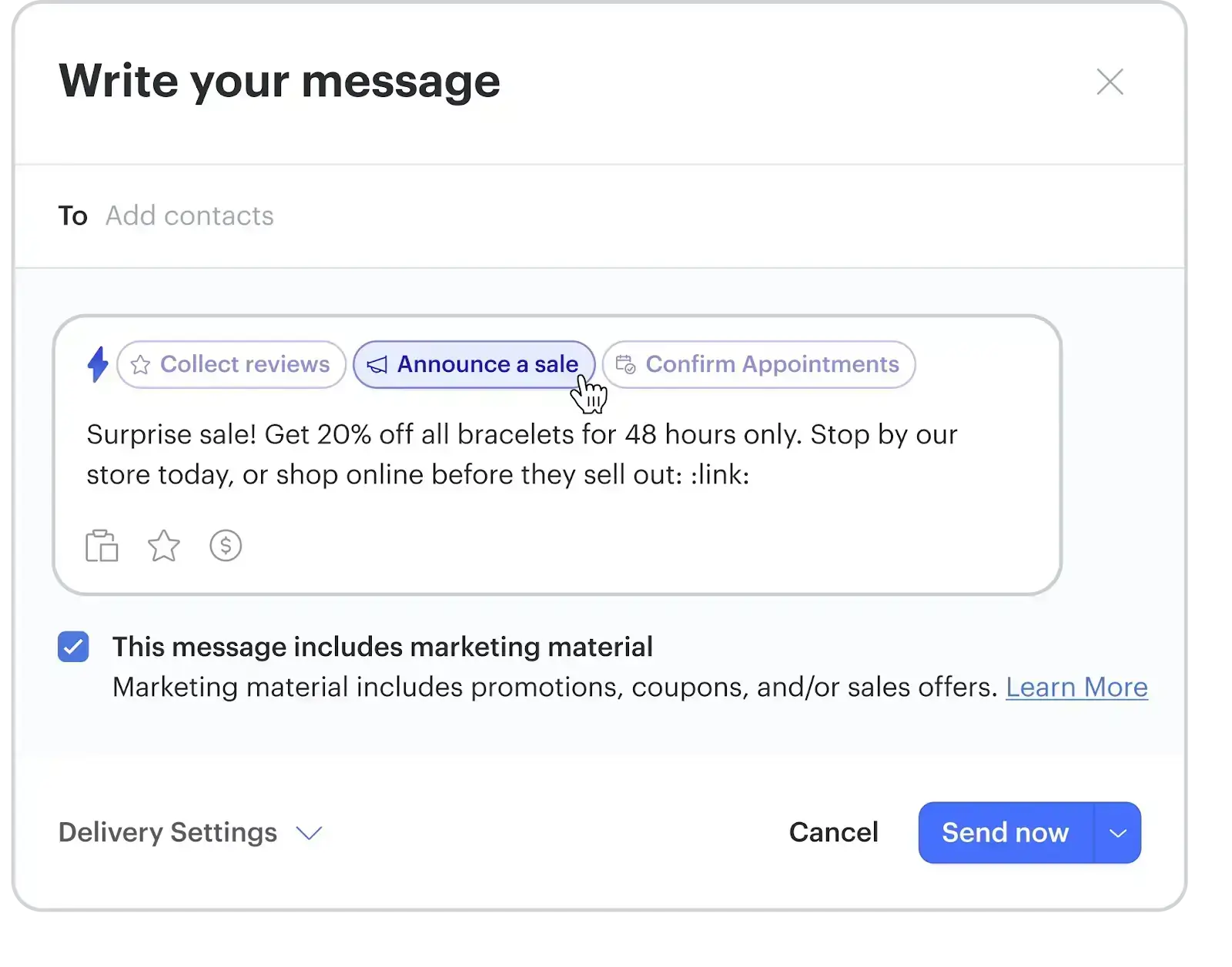
Pros:
✅Offers great customer support
✅Smooth UI
Cons:
❌Steep learning curve.
❌High pricing, best suited for large companies only.
Priced at $399 Per Month
4. RepuGen
RepuGen is a healthcare-focused reputation management platform designed to improve patient satisfaction and online reviews. It helps healthcare providers monitor and respond to patient feedback in real time while automating review requests to enhance their online presence. The platform also tracks sentiment analysis to provide actionable insights for improving patient care. RepuGen integrates with various healthcare systems to streamline operations and increase the likelihood of positive patient reviews, thus boosting the reputation and credibility of medical practices.
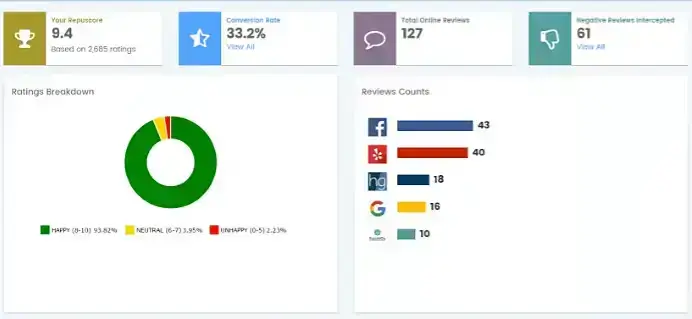
Pros:
✅Great focus on the healthcare industry
✅Easy to use
✅Great customer support
Cons:
❌Only focuses mainly on reputation management
❌No white-labeling options
❌Provides a lot of basic services as an add-on
Their pricing structure is not transparent
Impact of ORM on Discovery
As digital platforms become more prevalent, patients are turning to online resources to research providers and services before making choices. ORM helps craft that online narrative, shaping perceptions and helps in making patient engagement better, ultimately yielding positive results for healthcare organisations and doctors.
- ORM improves your visibility on platforms like Google Business Profile (GBP). Positive reviews not only help with local search rankings, but 77% of patients check out reviews before choosing a healthcare provider, and 60% specifically look at Google Reviews before making an appointment.
- Having a solid ORM strategy builds trust. Positive reviews give your brand credibility, and since 94% of patients rely on online reviews to choose a healthcare provider, a strong online presence can significantly influence patient choices.
- With 71% of patients doing online research before booking a healthcare appointment, practices that stay on top of their online presence and respond to reviews can build stronger patient relationships. This leads to patient loyalty and repeat visits.
- Part of a great ORM strategy is quickly addressing negative feedback so that small issues don’t escalate. Engaging and interacting with customers through social media also increases customer satisfaction and loyalty at the same time, it also helps with attracting new customers who value responsive brands.
Summing it up
In conclusion, doctors need to understand the importance of maintaining a strong online presence - not just to enhance their reputation but also to attract new patients. A positive online reputation, backed by great reviews, is important for building trust and confidence with prospective patients.
Keep in mind that medical reputation management isn’t just about improving your online image; it’s about portraying true quality and commitment of your healthcare services. Every effort you make in managing your online reputation not only helps you with your credibility but also helps serve your community better.
Sign up for a demo and we will show you how Synup can turn this around. Once your account is set up it’s quite simple from here onwards. Just connect your Google and Facebook profiles and we’ll sync all your listings and reviews for you.
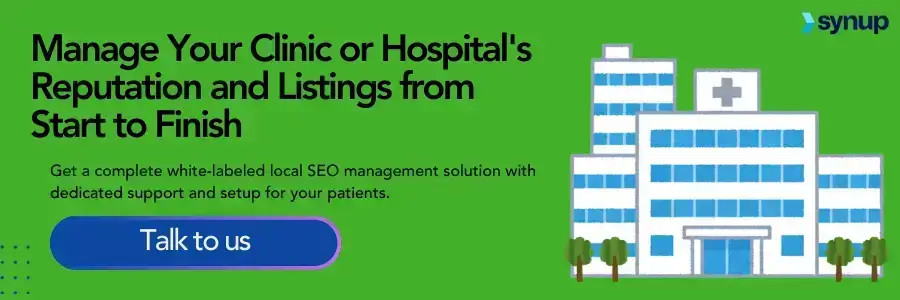
Online Reputation Management For Doctors: FAQs
- Which Platform is Best For Reputation Management?
Synup is an excellent choice for reputation management, offering comprehensive tools to manage listings, monitor reviews, and respond to feedback seamlessly. Its user-friendly interface and robust analytics make it ideal for businesses looking to enhance their online presence and credibility.
- What is Online Reputation Management?
Online Reputation Management (ORM) involves monitoring, influencing, and controlling how a business or individual is perceived online. It encompasses managing reviews, social media feedback, and search results to ensure a positive public image.
- How Can I Monitor My Reputation Online?
You can monitor your online reputation by using tools like Google Alerts to track mentions of your name or business, regularly checking review sites, and leveraging ORM platforms that aggregate and analyze feedback. Engaging with your audience on social media can also provide insights into public perceptions.




